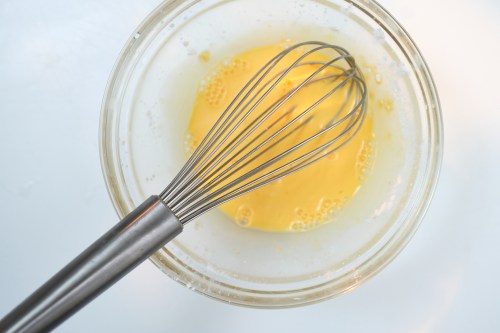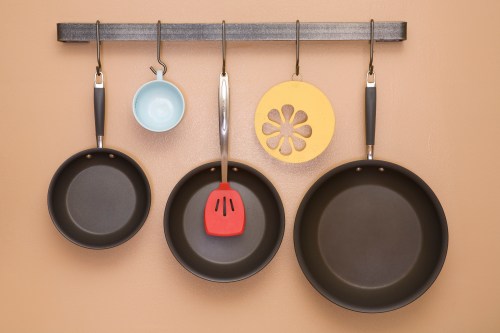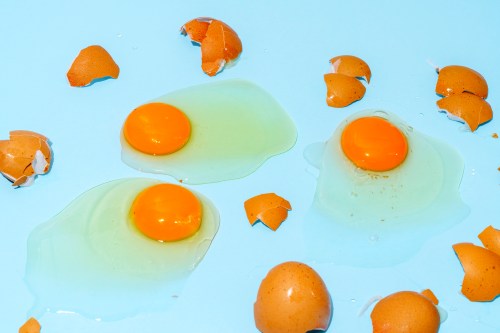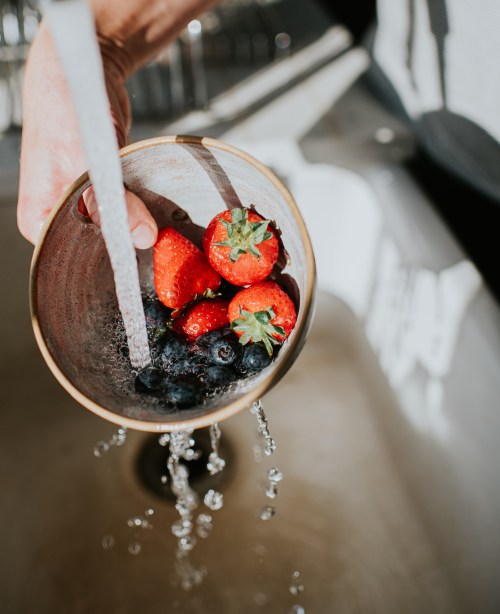More Than 200,000 Pounds of Egg Beaters Recalled Over Possible Bleach Contamination
A toxicologist and food safety experts break it down.

Cargill Kitchen Solutions is recalling 212,268 pounds of liquid egg products over concerns that they might contain a household cleaning solution. The recall includes popular brands, including Egg Beaters and Bob Evans, according to the U.S. Department of Agriculture (USDA).
The impacted liquid egg products may potentially contain sodium hypochlorite, more commonly known as bleach. “These products do not pose a health concern if consumed,” a representative from Cargill Kitchen Solutions told Well+Good in a statement. The problem was discovered when the USDA received a tip about a potential contamination. No illnesses have been reported so far.
What is the Egg Beaters recall?
The USDA has given this recall a Class III designation, which means it’s unlikely to cause health issues or the risk is “negligible.”
The recalled liquid egg products were produced on March 12 and 13, 2025, and shipped to Ohio, Texas, Arizona, California, Colorado, Florida, Illinois, and Iowa. “There is a possibility that the products were distributed nationwide,” the USDA recall notice reads.
These are the impacted products, per the USDA:
- 32-oz. (2-lb.) carton containing “Egg Beaters Original Liquid Egg Substitute” and a use by date of August 10, 2025.
- 32-oz. (2-lb.) carton containing “Egg Beaters Cage-Free Original Liquid Egg Substitute” and a use by date of August 9, 2025.
- 32-oz. (2-lb.) carton containing “Egg Beaters Cage-Free Original Frozen Egg Substitute” and “Egg Beaters No Enjaulada Original Sustituto de Huevo Congelado” and a use by date of March 07, 2026.
- 32-oz. (2-lb.) carton containing “Bob Evans Better’n Eggs Made with Real Egg Whites” and a use by date of August 10, 2025.
All of the products have the establishment number “G1804” ink-jetted on the carton. The USDA has also shared photos of the labels of the recalled products, in case you need more detail.
“Food and consumer safety is top priority,” a Cargill representative said in a statement to Well+Good.
What makes this recall dangerous?
While the USDA and Cargill stress that you’re unlikely to get sick from ingesting the recalled products, it’s understandable to have questions. “Sodium hypochlorite is a fancy way of saying bleach,” says Jamie Alan, PhD, an associate professor of pharmacology and toxicology at Michigan State University. “This kills bacteria that it comes in contact with.”
But Alan says that you shouldn’t panic if you’ve had the recalled liquid eggs. “Unless there were large amounts present, the danger to the gastrointestinal tract is small,” she says.
Christopher Counts, MD, emergency medicine physician and toxicology fellow at New Jersey Poison Control Center at Rutgers New Jersey Medical School, agrees. "There is minimal danger in ingesting low concentrations of sodium hypochlorite," he says. But having high concentrations of sodium hypochlorite can cause injuries to your throat and stomach, Counts adds.
Still, Alan stresses that people are “unlikely” to have symptoms. However, “you might have nausea or feel a bit of burning when swallowing the contaminated food,” she says.
How does a cleaning solution end up in Egg Beaters?
Sodium hypochlorite is a common ingredient in cleaning and sanitizing solutions used in food production facilities, explains Darin Detwiler, author of the book Food Safety: Past, Present, and Predictions and a professor at Northeastern University. “It can accidentally end up in food when equipment is not rinsed properly after cleaning, or when there are processing errors, such as cleaning solutions being mixed into food products due to valve or pipe failures,” he says.
While you’re unlikely to get sick if you happen to ingest small amounts of bleach, Detwiler stresses that it’s not for consumption. “Most incidents like this come down to human error, poor equipment design, or gaps in employee training,” he says.
He also points out that you can’t cook the bleach away. “It has no place in our food,” he says. “Cooking does not neutralize sodium hypochlorite—in fact, heating it can worsen the problem by releasing chlorine gas, adding an inhalation risk on top of the ingestion hazard.”
What to do if you have Egg Beaters at home
If you have the recalled products at home, the USDA recommends that you throw them away or return them to the place where you purchased them for a refill.
If you already ate it, Alan recommends that you drink plenty of water. “Do not try to induce vomiting,” she says. “If it burned on the way down, it will burn on the way up, too, and cause more damage.” If you feel sick, Alan suggests going to the ER. “I don’t expect many, if any, will become sick or need medical care,” she says.
Cargill also recommends contacting its consumer hotline if you have any questions about the recall at 1-844-419-1574.
Sign Up for Our Daily Newsletter
Get all the latest in wellness, trends, food, fitness, beauty, and more delivered right to your inbox.
Got it, you've been added to our email list.










